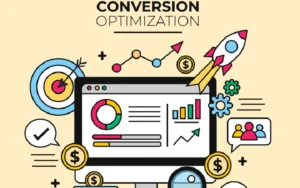How Conference Management Companies Handle Last-Minute Changes?
Planning a conference can feel like juggling flaming torches while riding a unicycle. Every detail matters, from securing the venue to coordinating speakers and managing attendees. But what happens when unexpected changes arise at the last minute? Enter conference management companies – the unsung heroes of event planning who are experts in navigating these turbulent waters.
These professionals don’t just manage logistics; they anticipate potential hiccups and prepare for them with finesse. Whether it’s a sudden venue change or a speaker cancellation, their ability to adapt quickly is crucial for ensuring that conferences run smoothly. In this blog post, we’ll explore how these companies tackle last-minute changes head-on, equipping you with insights that can make your next event even more successful.
Understanding the Role of Conference Management Companies
Conference management companies play a pivotal role in the event planning landscape. They serve as the backbone of any successful conference, handling everything from logistics to attendee experience.
These firms specialize in coordinating various elements such as venue selection, catering services, and audiovisual requirements. Their expertise ensures that every aspect aligns perfectly with the event’s goals.
Moreover, they act as liaisons between all stakeholders involved—sponsors, speakers, and attendees. This seamless communication is essential for maintaining clarity and organization throughout the planning process.
Their knowledge extends beyond mere coordination; they also bring strategic insight into budgeting and marketing. By leveraging industry contacts and resources, these companies enhance an event’s visibility while keeping costs under control.
Their comprehensive approach allows organizations to focus on content delivery rather than logistical headaches. With their support, conferences can transform from mere gatherings into impactful experiences.

Common Reasons for Last-minute Changes in Conferences
Last-minute changes in conferences can arise from various unexpected situations. One common trigger is speaker cancellations. Whether due to travel issues or personal emergencies, the absence of a key presenter can throw a wrench into well-laid plans.
Another frequent cause is venue-related challenges. Last-minute double bookings or facility issues might force planners to scramble for alternatives. This not only disrupts schedules but also impacts logistics.
Attendance fluctuations are also problematic. A surge in registrations or an unexpected drop can result in seating and catering headaches that need immediate attention.
External factors like severe weather events or public health concerns may necessitate sudden adjustments. These unpredictable elements remind conference management companies how essential it is to stay agile and prepared for anything that comes their way.
The Importance of a Backup Plan
A backup plan is essential in conference management. Events are unpredictable, and last-minute changes can arise unexpectedly.
Having a solid contingency strategy ensures that any disruptions can be addressed swiftly. This might include venue alternatives, speaker substitutions, or technology solutions.
Preparedness fosters confidence among stakeholders. Attendees appreciate knowing there’s a reliable plan in place should something go awry.
Additionally, it allows the team to focus on delivering a seamless experience. When everyone knows their roles during an emergency, chaos is minimized.
Backup plans also enhance communication with vendors and suppliers. They help establish clear expectations about responsibilities when issues occur.
Being proactive sets the tone for successful event management—even amidst challenges.
Communication and Flexibility in Dealing with Changes
Effective communication is crucial when navigating last-minute changes in conferences. Conference management companies excel at keeping all stakeholders informed. They ensure that everyone—from the venue staff to speakers and attendees—understands what’s happening.
Flexibility is equally important. Unexpected issues can arise, such as speaker cancellations or venue problems. A responsive team adapts quickly, finding alternative solutions without disrupting the event flow.
Moreover, using technology plays a vital role in this process. Real-time updates via apps or social media keep attendees engaged and aware of any adjustments.
Building strong relationships with vendors also enhances flexibility. When challenges emerge, established connections allow for swift resolutions and support.
It’s about creating a culture of adaptability within the planning team. This mindset fosters confidence among clients and participants alike during uncertain times.
Case Studies: Success Stories of Handling Last-Minute Changes
One notable success story comes from a tech conference that faced a venue cancellation just days before the event. The conference management company quickly mobilized its network, securing an alternative location within 24 hours. They communicated transparently with attendees and speakers, providing updated details via email and social media.
Another instance involved a global summit where a keynote speaker fell ill at the last minute. The management team swiftly arranged for an engaging substitute who was equally knowledgeable on the topic. This quick thinking not only salvaged the session but also received positive feedback from participants.
A healthcare seminar had to change its agenda due to unexpected regulatory updates. The conference management company adapted by offering additional sessions that addressed these changes, ensuring attendees left informed and satisfied with their experience. Each of these cases illustrates how proactive measures can lead to successful outcomes amidst chaos.
Tips for Avoiding Last-Minute Changes
Planning ahead is crucial. Start early to allow ample time for adjustments. Create a detailed timeline that outlines each phase of the planning process.
Engage all stakeholders from the beginning. Regular meetings with your team and vendors can help identify potential issues before they escalate.
Establish clear lines of communication. Ensure everyone knows who to contact for specific concerns, minimizing confusion later on.
Be adaptable in your approach. If you foresee possible obstacles, develop contingency plans that can be activated quickly if needed.
Document every decision meticulously. Keeping records helps streamline changes when necessary and aids transparency among all parties involved.
Invest in technology solutions tailored for event management. These tools can provide real-time updates and enhance collaboration across teams, reducing the likelihood of last-minute surprises.
Conclusion
Conference management companies play a pivotal role in ensuring events run smoothly, even when unexpected changes arise. By understanding the intricacies of last-minute adjustments and preparing accordingly, these professionals can minimize disruptions while maximizing attendee satisfaction.
The importance of having a solid backup plan cannot be overstated. This strategy not only mitigates risks but also builds confidence among stakeholders that any potential issues can be handled efficiently.
Effective communication is crucial during times of change. When all parties are informed and involved, it allows for flexibility that contributes to a successful event outcome.
We’ve seen numerous success stories from conference management companies adept at handling surprises with grace and poise. These examples serve as valuable lessons on the power of preparation and adaptability.
To avoid last-minute crises, planning ahead remains essential. Keeping an open line of communication with vendors and clients helps anticipate possible changes before they occur.
The world of conferences is dynamic, filled with challenges that require quick thinking and strategic solutions. Those who embrace this fluidity often find themselves leading the way in creating memorable experiences for attendees.

Marin Hùng, a passionate advocate for holistic well-being, is the driving force behind our health-focused platform. With a deep-rooted commitment to promoting a balanced and vibrant lifestyle, Marin brings a wealth of knowledge and experience to our health community. As a dedicated writer and wellness enthusiast, Marin’s insightful articles and expertise are at the heart of our mission to inspire healthier living.















Post Comment